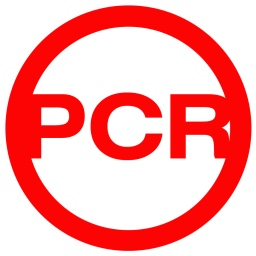Fake Notifications Using the Windows or Mac Notification System
Oct 08, 2025Fake Notifications Using the Windows or Mac Notification System
(How scammers use real-looking system alerts to trick you into installing malware or calling fake support lines.)
Have you ever seen a Windows or Mac “Security Alert” pop up in the corner of your screen? Maybe it said your computer was infected or that you needed to “renew antivirus protection.”
Those might not be real notifications — they’re often scams disguised as legitimate system messages.
Scammers now exploit built-in notification systems to send fake alerts through your browser or ad scripts, blending them seamlessly with real Windows or macOS to trick you into clicking.
Example 1 — Fake “Windows Defender” Notification
⚠️ Windows Defender: Your system is infected! Click here to remove the threat.
Why this is a scam
-
Windows doesn’t send security alerts through your web browser or notification area from unknown sites.
-
Clicking opens a fake “support” or “antivirus renewal” page.
What’s really happening
A malicious website requested permission to send browser notifications. Once allowed, it can send spam “system” alerts that look official — even when your browser is closed.
What to do next
-
Open your browser → Settings → Notifications → remove or block suspicious sites.
-
Run a real antivirus scan (Windows Defender, ESET, Malwarebytes).
-
Never click a link or phone number in a notification.
Example 2 — Fake macOS “System Warning” Banner
Your Mac is infected! Immediate action required. Click “Scan Now” to protect your system.
Why this is a scam
-
macOS doesn’t deliver “security warnings” from Safari or the Notification Center.
-
Real macOS alerts come from Apple apps (System Settings, XProtect, etc.), never from a webpage.
What’s really happening
The scam comes from a malicious site using the Safari “Allow Notifications” feature to push alerts that appear like they’re from macOS.
What to do next
-
Open Safari → Settings → Websites → Notifications → remove suspicious domains.
-
Force quit Safari if you can’t close the popup.
-
Run a malware check using built-in or trusted tools.
Example 3 — Subscription Renewal or “License Expired” Popup
“Your antivirus subscription has expired. Click to renew or your system will be at risk.”
Why this is a scam
-
Fake notifications imitate Norton, McAfee, or Apple logos to get you to buy a bogus renewal.
-
Scammers collect credit card info through fake payment forms.
What’s really happening
Malicious ads display HTML mimicking legitimate renewal popups. It’s purely visual—no real antivirus is involved.
What to do next
-
Don’t click links in renewal popups.
-
Check your legitimate antivirus software or purchase history directly.
-
If you entered payment info, contact your card provider immediately.
🔍 Quick Tip
Real Windows and Mac notifications come from installed software, not your web browser.
If you see a notification that links to a website or phone number — assume it’s fake until verified.
If you’re unsure whether an alert is real, take a screenshot and send it to [email protected] or schedule a 15-minute checkup.
We’ll verify it safely — before you click.
Have a PCRescue Subscription?
You already have access to free tools and support
If you don't have a PCRescue Subscription, try one free for 30 days.
No credit card required.
Stay connected with news and updates!
Join our mailing list to receive the latest news and updates from our team.
Don't worry, your information will not be shared.
We hate SPAM. We will never sell your information, for any reason.

